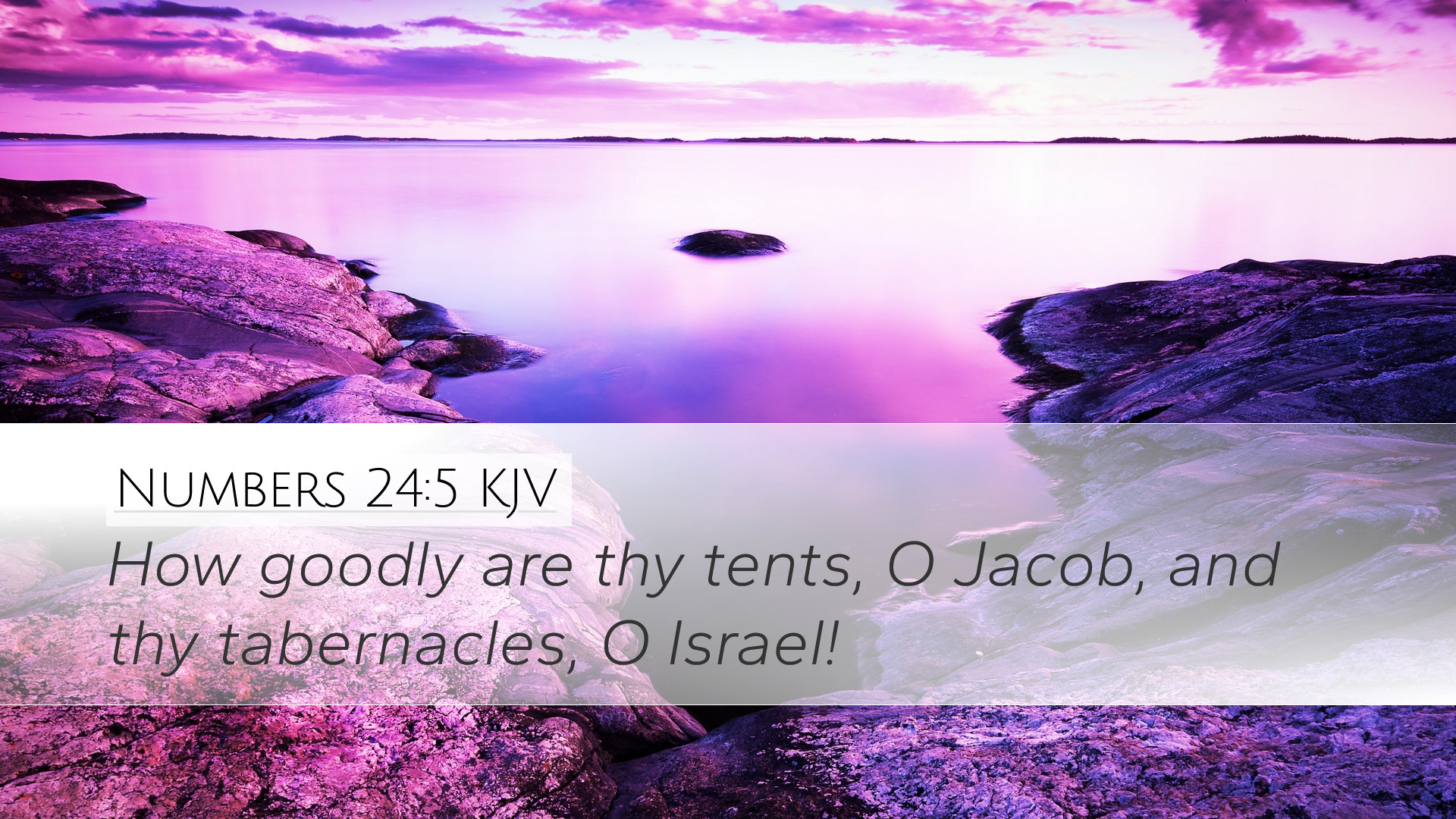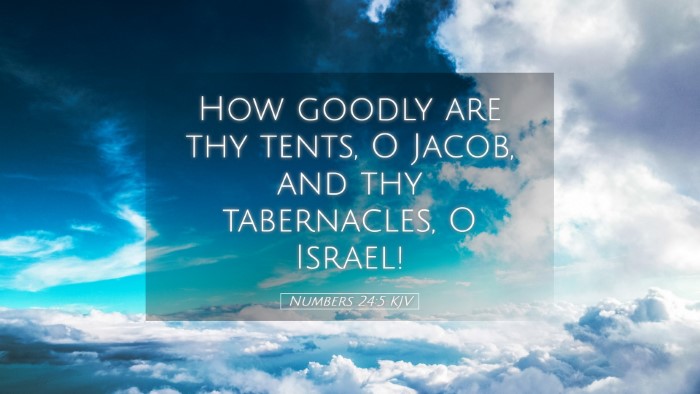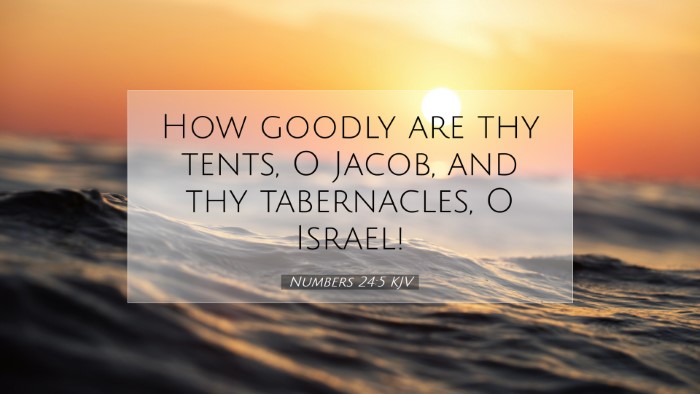Bible Commentary on Numbers 24:5
Text of the Verse: "How goodly are thy tents, O Jacob, and thy tabernacles, O Israel!"
Introduction
This verse is heralded in the prophetic narrative found in the Book of Numbers, where Balaam, moved by the Spirit of God, articulates a reflection on the people of Israel. The context sheds light on Israel's position as the chosen people of God, signifying both their physical dwellings and their spiritual standing.
Commentary Summary
1. Contextual Background
Balaam, a Moabite prophet, was summoned by King Balak to curse Israel, yet through divine intervention, he speaks blessings instead. His poetic declaration in Numbers 24:5 reveals not only the aesthetic and structural aspects of the Israelite camps but also their spiritual vitality.
2. The Beauty of Divine Arrangement
- Matthew Henry emphasizes the "goodliness" of the tents, suggesting that God's arrangement for His people signifies His favor and approval.
- Albert Barnes expands on the concept of "tents" and "tabernacles," correlating them with the different tribes and their distinct purposes under God's commandments.
- Adam Clarke relates the visual beauty of these encampments to the splendor of God's providence in directing His people toward their mission.
3. Spiritual Implications
This verse invites pastors and theologians to view Israel not merely as a physical entity but as a spiritual metaphor for the community of believers today. The tents symbolize stability and God's presence among His people.
- Unity in Diversity: Each tribe represented diversity within unity, a concept vital for the modern church as it navigates various gifts and congregational expressions.
- God's Presence: The "tabernacles" signify God dwelling among His people, teaching today's believers about the importance of inviting God’s presence into their communal and individual lives.
Theological Insights
1. Covenant Relationship
The declaration of Balaam serves as an affirmation of the covenant relationship between God and Israel. Commentators point out that this relationship rests on God's unconditional love and commitment, which serves as a model for understanding God’s unchanging nature toward His people.
2. Prophetic Significance
This prophecy points forward to the future restoration and honoring of Israel, a concept echoed throughout Scripture. The beauty seen in their tents becomes a prophetic glimpse into God’s Kingdom and His promises being fulfilled among His people.
3. The Role of the Church
Much like Israel’s tents, the church must be seen as a place where God’s presence dwells—a community marked by love, fellowship, and righteousness. The insights from this verse can challenge contemporary believers to reflect on how their lives and communities reflect God’s glory.
Conclusion
Numbers 24:5 is much more than a mere observation; it carries deep theological and practical implications for modern faith communities. The perspectives from scholars like Matthew Henry, Albert Barnes, and Adam Clarke combine to show that the tents of Israel are emblematic of God’s continued faithfulness and His design for a community marked by beauty, purpose, and divine favor.
As pastors, students, theologians, and scholars contemplate this verse, may they be compelled to recognize the profound beauty in their own "tents" and the need for God’s presence in their midst, seeking His glory above all.


